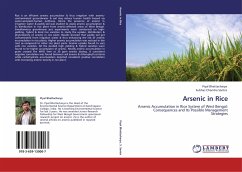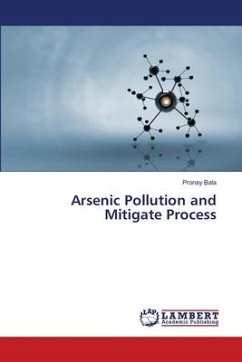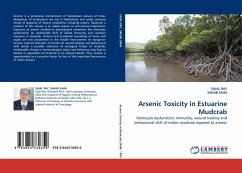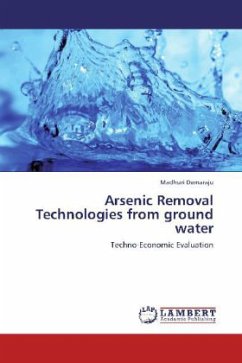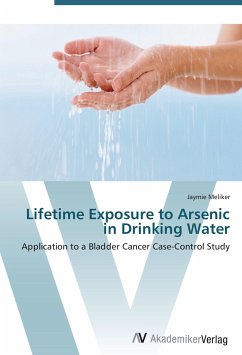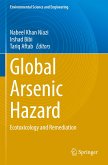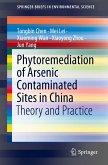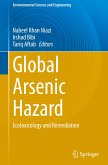Rice is an efficient arsenic accumulator & thus irrigation with arsenic-contaminated groundwater & soil may induce human health hazard via water-soil-plant-human pathway. Hence the presence of arsenic in irrigation water & paddy soil was studied to assess arsenic accumulation & its distribution in rice plant from arsenic-affected areas of West Bengal. Simultaneous greenhouse pot experiments were conducted on high-yielding, hybrid & local rice varieties to study the uptake, distribution & phytotoxicity of arsenic in rice plant. Results showed that paddy soil get contaminated from irrigation water & thus enhancing the risk of arsenic accumulation in rice plants. Higher arsenic accumulation was noticed in the root as compared to other rice plant parts. Arsenic uptake found to vary with rice varieties. All the studied high yielding & hybrid varieties were found to be higher accumulator of arsenic. Mostly arsenic accumulation in grain crossed the WHO limit at 20 ppm arsenic dosing. A consistent negative correlation was found between soil arsenic & chlorophyll contents while carbohydrate accumulation depicted consistent positive correlation with increasing arsenic toxicity in rice plant.
Bitte wählen Sie Ihr Anliegen aus.
Rechnungen
Retourenschein anfordern
Bestellstatus
Storno

